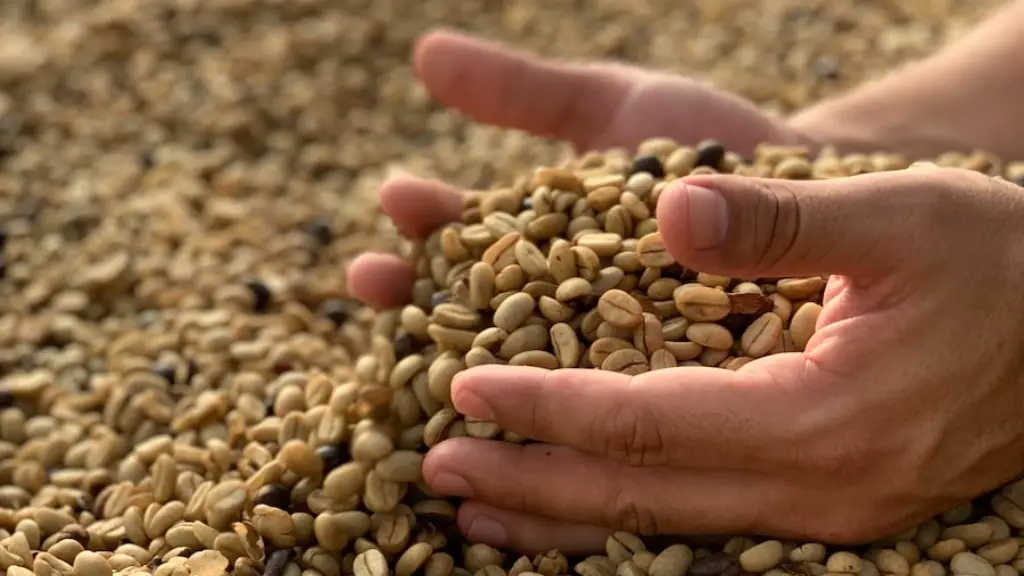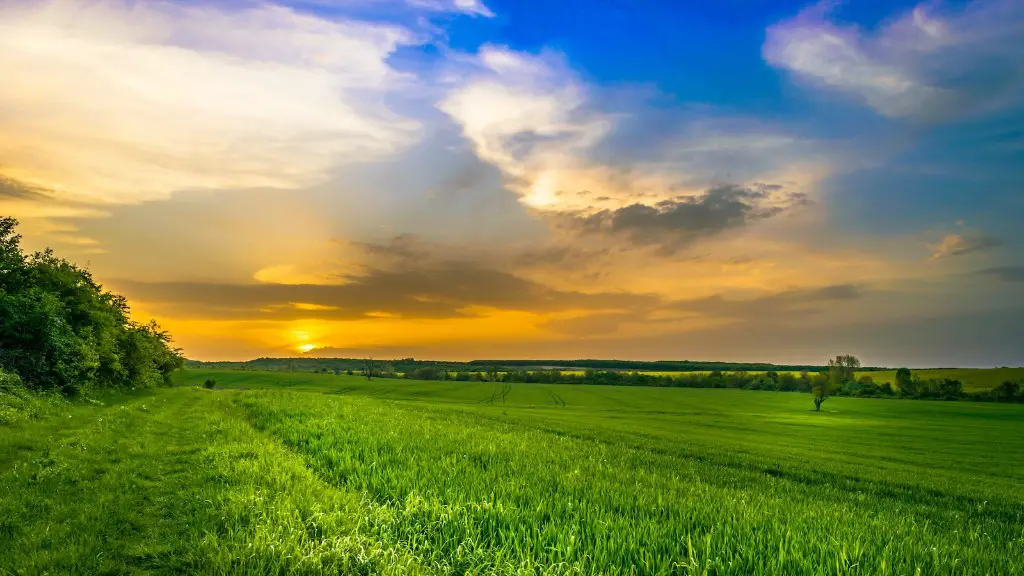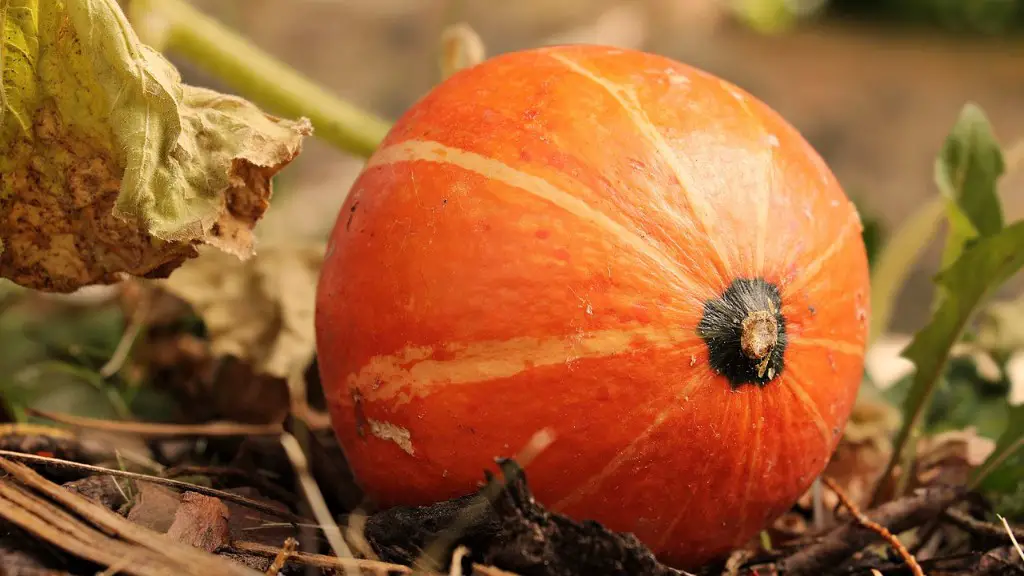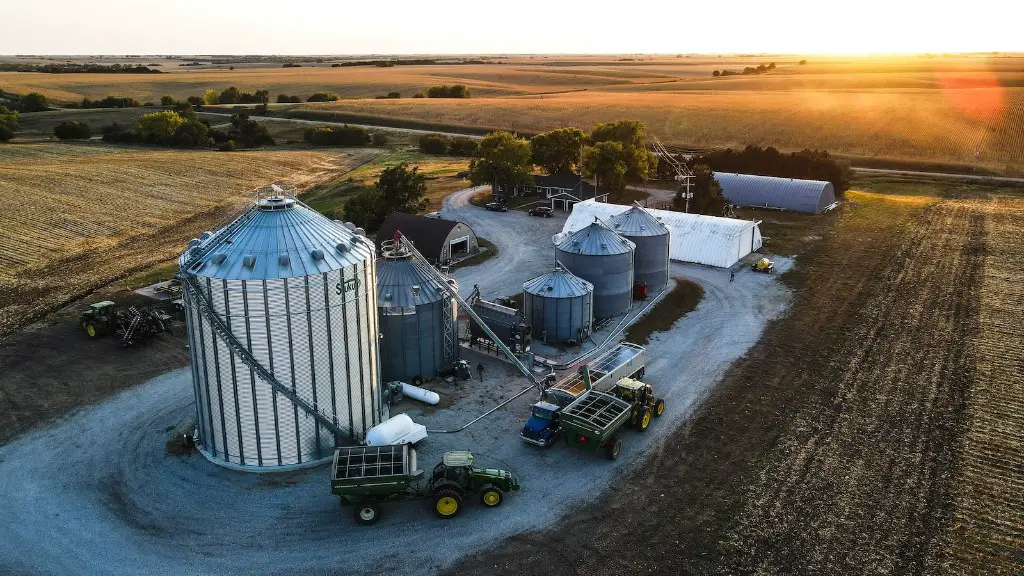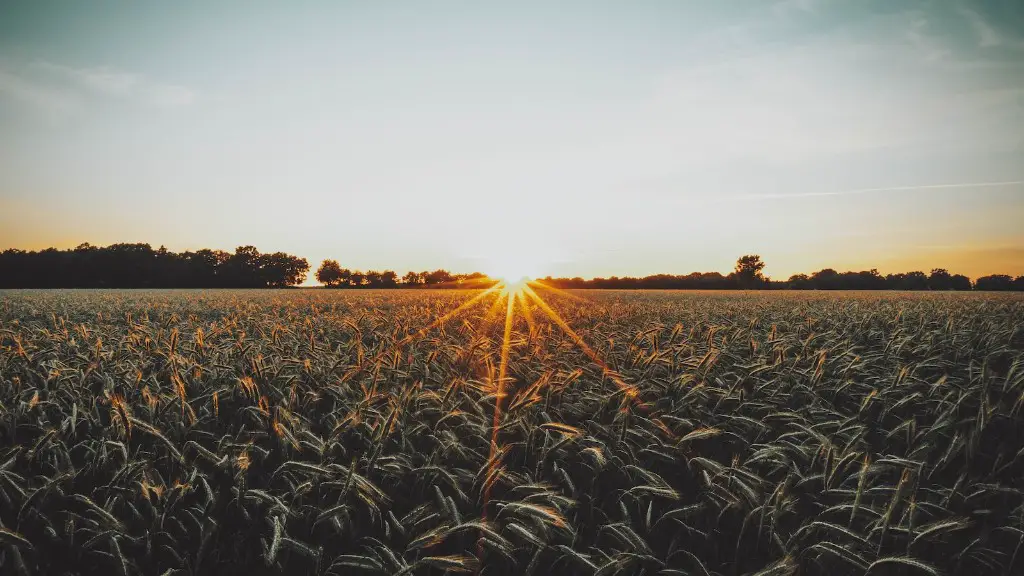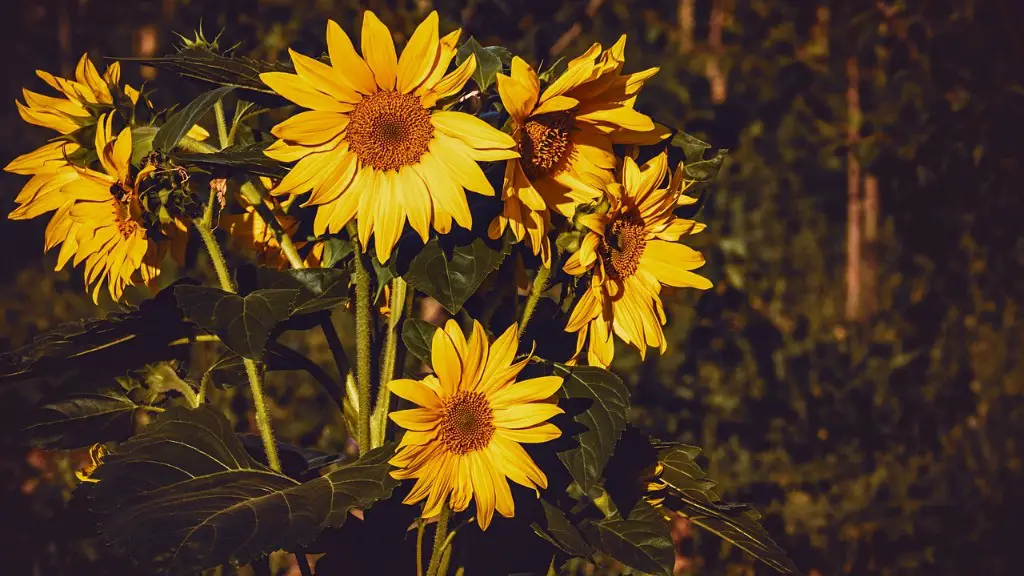Water is essential for life, and agriculture is one of the biggest users of water resources. In the United States, agriculture accounts for approximately 80% of the country’s total water consumption. The main reason agriculture uses so much water is because crops need water to grow. It takes a lot of water to irrigate fields and provide water for livestock. Another reason agriculture uses a lot of water is because of the need to clean equipment and facilities. Agricultural facilities can be very large and water is necessary to clean them. Finally, agriculture uses water for a variety of other purposes such as frost protection, chemical applications, and cooling.
Agriculture is the most water-intensive sector of the economy, accounting for approximately 70% of all water used globally. The main reason for this is that agriculture requires large amounts of water for irrigation. In many countries, irrigation is the single largest use of water, and it is typically used to water crops during the dry season.
Why is agriculture such a huge user of water?
Agricultural water is a vital resource for growers and farmers. It allows them to irrigate their crops, apply pesticides and fertilizers, and control the temperature of their plants. All of these activities are necessary for the production of healthy food.
Water-intensive crops are those crops that require a lot of water to grow. Some examples of water-intensive crops are rice, soybeans, wheat, sugarcane, cotton, and alfalfa. Pasture is also a water-intensive crop. These crops require more water than other crops, and they are often grown in areas where water is scarce.
Does agriculture consume the most water
Agriculture is the largest water user worldwide, accounting for 70 percent of total freshwater withdrawals on average. However, in some developing countries, agriculture can account for up to 95 percent of all water withdrawals. This high level of water use can put a strain on local water supplies, particularly during periods of drought. Therefore, it is important for farmers to use water efficiently and to consider ways to reduce their reliance on irrigation.
Pasture is one of the most water-intensive crops in California, requiring an average of 492 acre feet of water per acre in one growing season. This is more than double the amount of water required for the next most water-intensive crop, alfalfa, and nearly four times the amount required for the third most water-intensive crop, nuts.
Is agriculture one of the greatest water users?
Agriculture has, arguably, been very successful at capturing the major share of the world’s exploitable water resources. However, the environmental and socio-economic rationale for this capture by the sector is now being questioned.
There are a number of reasons for this. Firstly, the sector is responsible for a significant proportion of water pollution, both through the use of pesticides and fertilizers, and through livestock farming. Secondly, the sector is a major consumer of water, and as such is often blamed for water shortages. Thirdly, the sector is often seen as being inefficient in its use of water, with a large proportion of water being lost through evaporation and leakage.
The sector is also facing increasing competition for water from other sectors, such as industry and tourism. This is particularly the case in areas where water is scarce, such as the Middle East.
As a result of all these factors, there is an increasing calls for the reform of the sector, in order to make it more sustainable. This includes calls for better water management, and for a greater focus on efficient irrigation practices. It also includes calls for a reduction in the use of water-intensive crops, such as rice and cotton.
Industrial water is used for a variety of purposes, including fabricating, processing, washing, diluting, cooling, and transporting products. The United States Geological Survey (USGS) estimates that industrial water use in the United States totalled about 34 billion gallons per day in 2010. The largest users of industrial water are the thermoelectric power, mining, and manufacturing industries.
Does agriculture use more water than homes?
The note should say that big agribusiness is using a large majority of water, which is impacting California’s water supply. It should also say that tree nuts require a large amount of water to grow, and that this is contributing to the problem.
Irrigation can move salt and other dissolved minerals to surface water, which can threaten human health as well as contribute to nutrient problems in streams, rivers, lakes, and estuaries. Livestock operations produce large amounts of waste, and if not properly managed, this waste can contaminate surface water and groundwater.
Do farmers use a lot of water
The agricultural industry is one of the largest consumers of water, accounting for an average of 70% of all water that is used annually. Of that 70% used by farmers, a significant amount is lost to the environment due to poor irrigation systems, evaporation, and overall poor water management. While the exact amount of water lost varies depending on the farm and location, it is clear that the agricultural industry has a big impact on water consumption and water waste. In order to reduce the amount of water lost, farmers need to invest in more efficient irrigation systems and water management practices.
While cities use more water overall, agriculture is a much more thirsty sector, using about 80% of the state’s water supply. In terms of long-term water sustainability, it is essential to address both agricultural and urban water needs. The PPIC Water Policy Center works to inform and improve water policy in California by conducting rigorous research and analysis, sponsoring nonpartisan public forums, and communicating research findings to policy makers, media, and the public.
Does agriculture use 20% of water?
The percentage of water use by sector varies between regions and between wet and dry years. On average, statewide, water use is roughly 50% environmental, 40% agricultural, and 10%urban. However, in some regions, the percentage of water use by sector may be different. For example, in a wet year, the agricultural sector may use more water than in a dry year.
Water is obviously necessary for irrigation, which is why an estimated 70% of the world’s fresh water is used for agriculture. But water is also used in food production in other ways. It takes water to raise livestock, clean and process foods, and transport food.
agricultural water productivity (the amount of crop per unit of water used) must increase by half by 2050.
Which industry is the biggest water user
Agriculture is one of the leading consumers of freshwater resources, accounting for 70% of the world’s total water use. In Europe, agriculture is the largest user of freshwater resources, consuming 44% of the total. While water use in agriculture is essential for food production, it places a significant strain on water resources. With the world’s population expected to reach 9 billion by 2050, the demand for water for agriculture is only going to increase, putting even more pressure on already strained water resources.
Agricultural contaminants, such as fertilizers and pesticides, can impair the quality of surface water and groundwater. These contaminants can be transported through runoff and infiltration into local streams, rives, and groundwater. This can cause pollution and impair the quality of these water sources.
What is the largest consumer of water *?
Agriculture is the largest user of fresh water resources, consuming 70% followed by industry (20 %) and municipalities account for remaining 10%. This high consumption is due to the large quantity of water required for irrigation. In addition, the agricultural sector is highly water-intensive, as it uses large amounts of water for livestock, crop production, and food processing.
As the world population continues to grow, and demand for food increases, it is essential that we find more efficient and sustainable ways to produce food. One way to do this is to adopt more water-efficient irrigation practices and technologies. This will help to reduce the amount of water used in agriculture, and ultimately help to protect our water resources.
Agriculture irrigation accounts for a very large percentage of water use worldwide. In many cases, it can lead to depletion of aquifers and negative environmental impacts. These can have significant economic impacts on the sector and beyond.
Final Words
One of the main reasons agriculture uses so much water is because of the large amount of irrigation that is necessary to grow crops. In addition, agricultural runoff can contaminate water supplies with pesticides and fertilizers, which can lead to further water pollution.
Water is essential for agriculture as it is for all life. Each year, agriculture uses about 70% of the world’s freshwater resources, making it the largest sectoral user.
